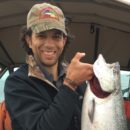We have much more to do and your continued support is needed now more than ever.
Diversity is a Conservation Issue
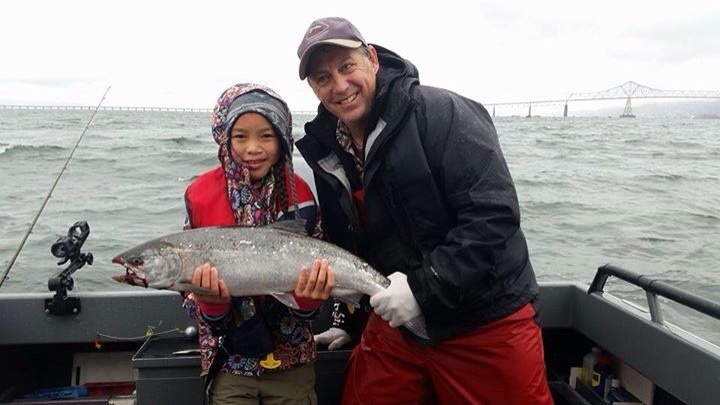
The first year or so I was a Steelheader member, I was consumed with simply learning how to fish. I was wholly focused on catching my first Buoy 10 salmon, and then my first winter steelhead. However, as I volunteered more of my time with the Steelheaders, and as I naturally became surrounded by the environmental and conservation issues that the Northwest Steelheaders has championed, it became quite clear that a way to improve my success in catching is to ensure that there are more fish in the river. A perfect drift in an empty hole catches nothing.
Our runs of salmon and steelhead are sliding in the wrong direction. While year-to-year returns will always fluctuate up and down, in aggregate they are far from rebounding. Certainly, if we do not step in and lessen the impact we are having on our ecosystem, these fish and our sport will disappear.
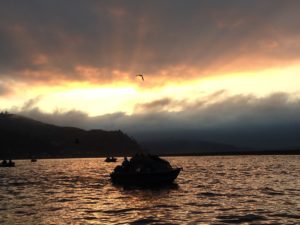
Fortunately, action is where the Northwest Steelheaders has shined, since the 1960s, fighting to preserve cold-water fisheries here in the Pacific Northwest. From fighting to remove commercial harvest of steelhead on the Columbia, to successfully getting gillnets off the main stem of the Columbia this spring and summer, to ensuring gas and oil terminals that endanger the Columbia do not gain a foothold, the Steelheaders have fought for fish. So it’s natural that people who learn to love fishing, and are interested in a responsible and sustainable harvest over robust and plentiful fish runs, would align their efforts to protect and enhance the water, forests, and ecosystems that support these fish. One of the primary goals the Northwest Steelheaders is to generate and cultivate the love of sport angling, and as people become aware of the issues, motivate them to participate and contribute to efforts to save our salmon and steelhead.
At the same time, the number of Oregon hunting and fishing license purchases are also sliding in the wrong direction. The best tips I have received at chapter meetings came from members who have been fishing for decades. But that base of anglers who will care about conservation issues is shrinking.
This topic is a well-worn stone. Most realize the more anglers there are, the more Steelheaders there will be, and the better equipped we are to support our goals. The many clinics, fish-along, and events like Family Fish Camp are investments in future anglers.
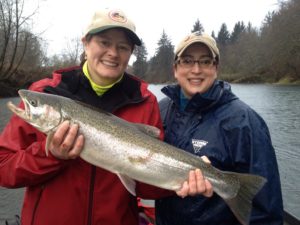
Over the upcoming year, we will be doubling-down on attending, sponsoring, and hosting events that open the door to more women, more people of color, and more members of the LGBTQ community. These events may not be traditional Steelheader events, but our goal is to attract more individuals who might be interested in learning to fish and enjoy the outdoors, interested in protecting watersheds, and who might not otherwise have heard of the long-standing work of which the Steelheaders have been a part.
We will also continue to search for grants and offer scholarships to families and individuals who are impacted financially, giving them chances they wouldn’t otherwise have. We will partner with other outdoor groups, and other non-profits who assist inner-city youth, low-income families, and marginalized groups to become interested in angling, and become educated in the environment around them and the impacts we have on it, and participate in enhancing and protecting them. Each voice, no matter how small it starts, can grow into a loud shout, and the issues Steelheaders will be tackling will need loud and educated voices.
So what about Inclusion?
When you see new faces coming to chapter meetings and events, what can you do? You can do the same that was done for me when I started attending: welcome them in and teach them. Show them techniques that have worked for you, draw them diagrams of fishing setups, invite them onto your boats, encourage them to educate themselves on sport-angling and conservation issues. As a warm heart in the Tualatin Valley Chapter once told me, “Steelheaders are Family.”
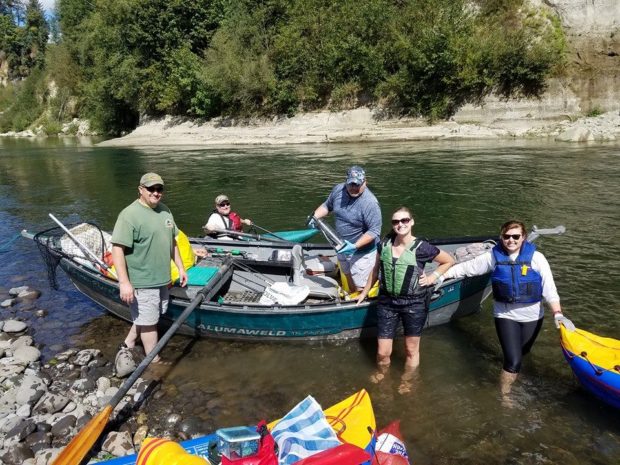
Inclusion in this era of division and hate has also never been more needed. It can be frightening to enter a meeting about a topic you know very little, and not see anyone who looks like you or has your background. If a neutral reception is given, or worse you have a negative experience, then you are unlikely to return. If we don’t welcome and include the new individuals we attract, they won’t tell their friends what a great time they had fishing, the story of their amazing first or latest catch, and the joy of experiencing people who have backgrounds just as diverse as them.
Additionally, their financial support, their advocacy voice, and their extended networks will go with them as well. Inclusion is about retaining those people new to our ranks so they stay and fight alongside us for the long term. Diversity is a Conservation Issue. Diversity means growth, Inclusion means retention, and more resources and more voices will help us bring more fish into our river systems for us to enjoy.
So perhaps I might take some liberties with the opening quote to better address our Steelheader community: Diversity is being invited to a Chapter Meeting. Inclusion is being asked to go fishing.
Learn More about The National Wildlife Federation’s Pacific offices here.
Subscribe for our Quarterly Regional Newsletter!
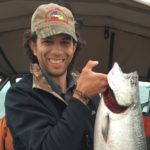
About the Author:
Aaron Bento serves as a Board Member for the National Wildlife Federations’s Oregon state affiliate, the Association of Northwest Steelheaders, as its Diversity and Inclusion Director working to bring conservation and the joy of fishing to underrepresented groups.

